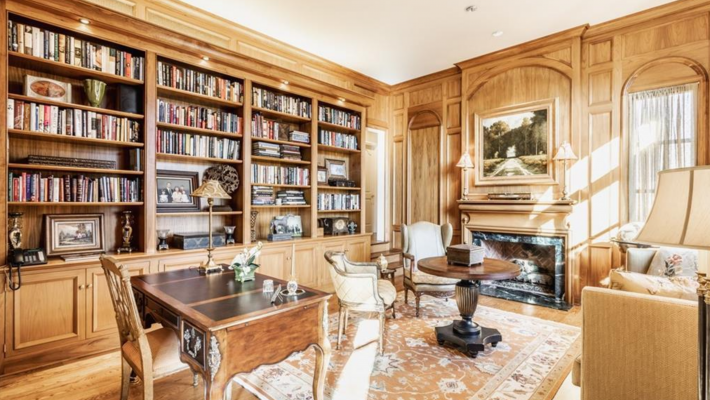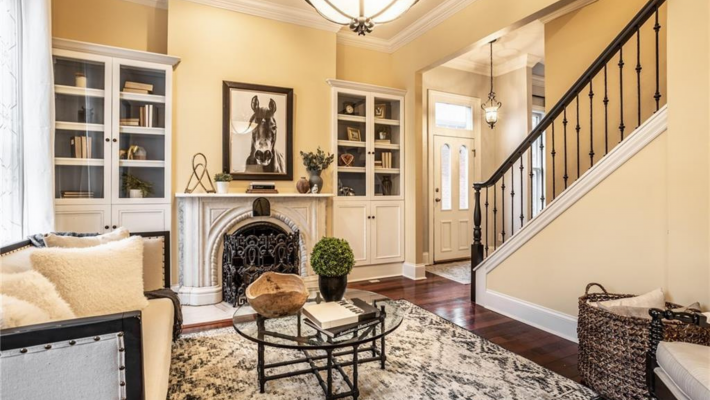Property has long been a key investment strategy for people who want to put their money into something that is relatively secure and more stable than the stock market.
For most people, their home is the biggest financial investment they’ll ever make – and a mortgage is a great hedge against inflation. Since property values are still steadily rising in a lot of areas and the housing market remains tight, this is an excellent time to consider broadening your horizons and investing in rental property.
Rental property comes in all kinds of forms. You could buy a single-family home that’s in decent shape and rent it out for more than your monthly mortgage. You can purchase an entire apartment building and collect multiple rent checks each month – or you could invest in commercial property and collect even higher rents from restaurants, medical partnerships and more.
First, however, you need to make sure that you understand the good, the bad and the basics of how to get started with investment rentals. We’re here to help.
What Are Some of the Benefits of Investing in Rental Properties?
Probably the top benefit that you’ll see is a lucrative source of passive income. As long as you’re able to keep your rental occupied, you’re reasonably assured of a steady stream of monthly rent checks. That can give your bottom line a nice little boost and help you meet personal financial goals for your budget and savings.
But that’s not the only financial benefit to owning rental property. As long as you don’t pick a property that’s in decline, you’ll be growing equity every year that you hold onto your investment. That asset buildup can equal a tidy payoff when it comes time to sell – which is something you may consider doing as you approach retirement.
Plus, you gain massive income tax deductions. Investment property is not without its expenses, and you get to deduct things like your mortgage interest payments, property insurance costs, renovation costs and general upkeep. Ultimately, your mortgage may cost you very little up-front, which means that you get an even bigger return on your investment down the line.
What Are Some Potential Drawbacks to Investing in Rental Property?
Investment properties do come with some challenges that you need to acknowledge before you get started. Landlords often struggle to find good, trustworthy tenants who want to stick around for a long time. That can lead to unfortunate turnovers and vacancies that can hurt your wallet for a while.
Problem tenants are another factor you have to consider. Some tenants are just difficult and demanding, while others are simply destructive. You have to be on the watch for illegal activity on the property, and you may have to occasionally deal with a tenant that can’t or won’t pay. Thorough background checks can help avoid problems, but that also means narrowing your selection of renters – and that can also contribute to vacancies.
There’s also the question of property management and upkeep. When a drain is plugged or there’s a strange leak coming through the ceiling of a rental, it’s the landlord’s job to make sure that things are fixed in a timely manner. Unless you’re deeply involved as an investor and a “hands-on” kind of landlord, that usually means spending some money upfront for a management company to handle the day-to-day issues with your rentals and the occasional repairman.
How Do You Choose an Investment Property?
More than anything else, this part often comes down to personal preference and your tolerance for risk:
- Single-family homes are probably the easiest to start investing with, and the easiest to manage. They’re also a fairly reliable place to put your money when inflation is high.
- Multiple-family units, like duplexes, apartment buildings and condos are probably the next safest investment, and they are good for providing multiple streams of income at once. The rents from occupied units can help cover the mortgage and other costs when you have vacancies.
- Luxury homes and vacation rentals can be lucrative, but they’re also pricey – and you aren’t guaranteed much in the way of stability in tough economic times.
- Commercial property goes through phases. What might be a hot property with a lot of foot traffic today could turn into an abandoned strip mall overnight. It’s important to consider your long-term plans for your investment and calculate the risks carefully before you buy.
Aside from that, the standard advice for picking any piece of real estate holds true: Look before you leap. Check out the neighborhood and research the demographics of the area so that you know what turnover rates are like, the average rental prices and the amenities the neighborhood has to offer before you commit.
How Can You Finance a Rental Property Investment?
Financing is probably one of the biggest hurdles people see when it comes to dipping their toes into the real estate investment waters, but there are actually plenty of options.
If you have the capital for a hefty downpayment and a great credit score, a regular mortgage is always possible. If not, you may be able to use a blanket mortgage. A blanket mortgage ties two or more properties together under the same loan, which makes it possible to use the equity you already have in your own residence to help finance an investment property. Even FHA loans can, with some creativity, be used to finance a rental property – particularly if you want to start with a duplex or something similar. (If not, you have to make the property your primary residence for at least 12 months before you can convert it to a rental.)
Whatever the potential challenges, it really is a good time to think about investing in real estate. Our mortgage experts can help you see what’s possible.
amanda.phillips@talktotucker.combill.ingram@talktotucker.combrad.layton@talktotucker.comeditors-pickerina.pribyshchuk@talktotucker.comfeaturedlloyd.zimmerman@talktotucker.commark.callahan@talktotucker.commary.layton@talktotucker.compriscila.hale@talktotucker.comterri.mcgraw@talktotucker.com




